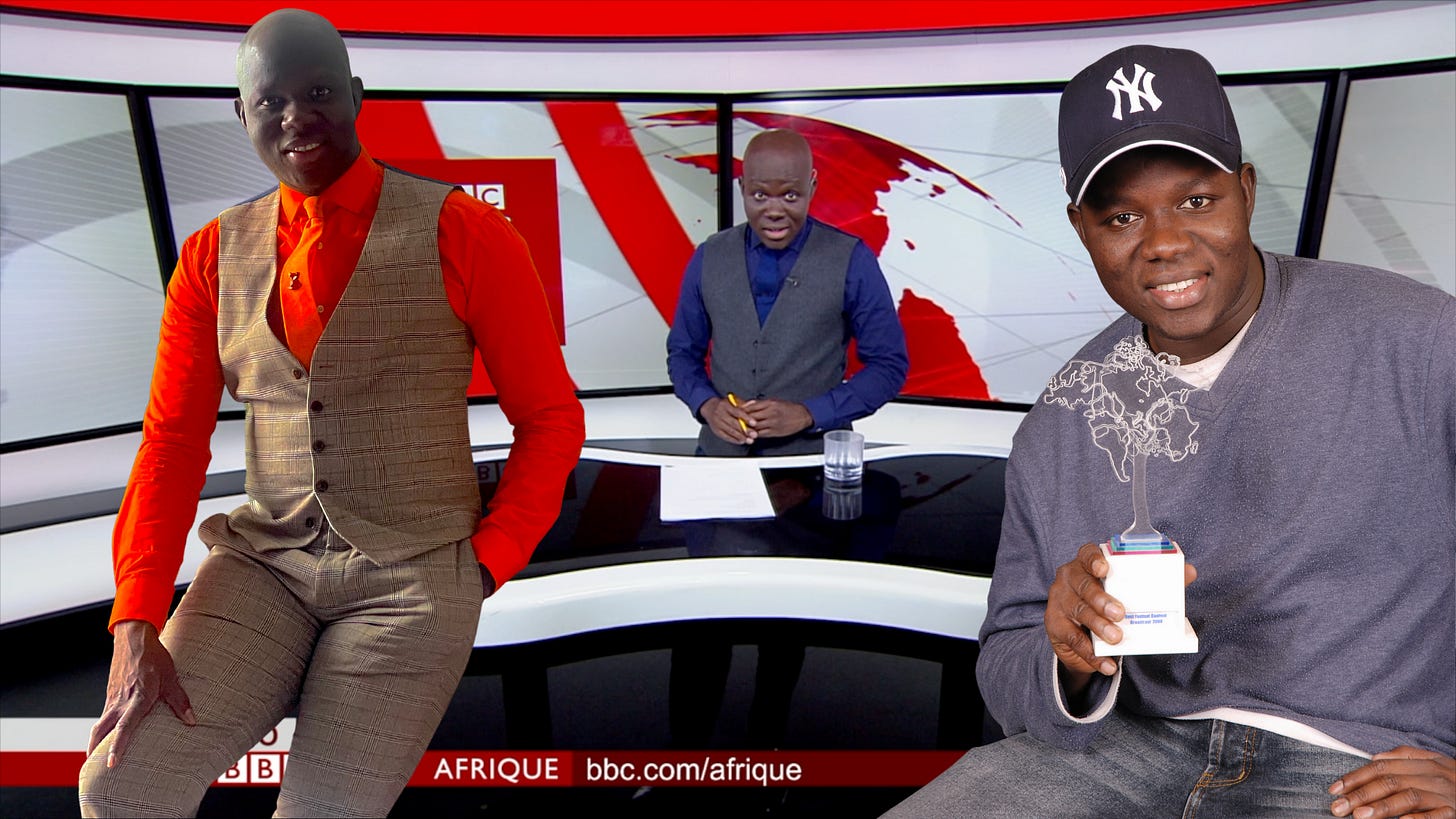Recycling Nearly 20 Years Of BBC Journalism
A brief story of my long walk to this platform where I experiment a "crossing" of philosophy with news and current affairs. I report like Orwell, yet think like Aurelius and Emerson.
In January 2004, I walked into a rather decent editorial position at The Strand in Central London to start a career as a BBC international broadcaster.
My brief was pretty simple: report with integrity on relevant news stories without much of any other consideration but the truth.
And so, with a strong sense that I was following in the footsteps of great names in the history of public broadcasting—Orwell, for one, who once walked the same corridors of BBC Bush House—I proudly settled into what quickly became an exhilarating adventure.
Yes, every appointment with the microphone in any of those studios was a ritual of some sort; a ritual of a spiritual nature: To have millions of people within the reach of one’s voice is a heady business—There’s something intrinsically exciting about the fact itself, but there was more to it.
Central to my role was the globe-trotting in the name of collecting news stories.
From the Cannes Film Festival to the Conclave in the Vatican, and all the way through those campaign trails (including that beat on the historic 2008 presidential election that ushered Obama into the White House), I had the time of my life.
It was exceedingly gratifying to have the privilege of access to both the news-makers and those who consumed the news. And here was the icing on the cake:
First at BBC Bush House and later at BBC Broadcasting House, feedback from complete strangers flooded in, with targeted appreciation for the work I did. There was a great deal of mentions about my voice—That it’s great, authoritative and trustworthy. And such trust, directly from those I strove to serve, seemed quite enough.
But the reward at times was not just figurative.
It was so much so that one evening I walked on to the BAFTA stage at Piccadilly Circus to accept a BBC Global Reith Award—so named after the first Director General of the BBC—for excellence in feature reporting.
That evening introduced me to what’s known as the Impostor Syndrome: The quality of the runners-up—a list that included a revered veteran of British broadcast journalism—made me feel much like a fraud.
Ultimately, I would grow out of the paltry sentiment that I was an accident of sorts. Of course, I wasn’t. I had deliberately plotted my way, through thoughts and actions, to that job and more than deserved all the monies and honours the position had to offer.
The Impostor Syndrome became much easier to shake off, when I started paying more attention to mentors and respected colleagues at Broadcasting House as they constantly summoned up my record and my character to pronounce me a “great broadcaster” and a wonderful team player.
I would go on to lead editorial teams and to mentor younger recruits—rewarding in itself.
Then, a few years ago, something of a weird momentum happened, both at work and in the wider zeitgeist. The story of what that is exactly is yet to be written.
But when I realised on the newsroom floor that I was very often a minority voice in being depressed at the fact that editorial outputs were now streams of unchallenged navel-gazing accounts, filled with moralising advocacy and endless politicking that made mountains out of molehills over the sexes, races, genders and History itself, I determined the time was up.
So in April 2021, I walked out of Broadcasting House and out of my role as TV Editorial Team Lead, totally uncertain as to what I would do next.
In the end, Parroll is one of at least two other things I settled upon, all involving in some measure the use of my writing and broadcasting skills, such as I developed them over two decades in the trade.
Stay up-to-date
As mentioned in other posts where I seek to introduce you to this publication, by reinvesting here nearly 20 years of BBC journalism, my goal is to make you, the reader, less of a powerless victim that is easily excited out of your senses by the original sin of journalism.
That sin obviously is the systematic reporting to you that the world is a sick place and you should therefore be afraid. In reality, the world has never been any better and you can summon the history of mankind to fact-check my claim.
So, I say: My goal is for you to be bolder, better, less apologetic for not buying into the high-street common follies, more stoical, in greater control over your mind, a master of your fate.
If anyone should have a Pavlovian approach to existence, let that be not you. I need your support. And thank you for subscribing now.




